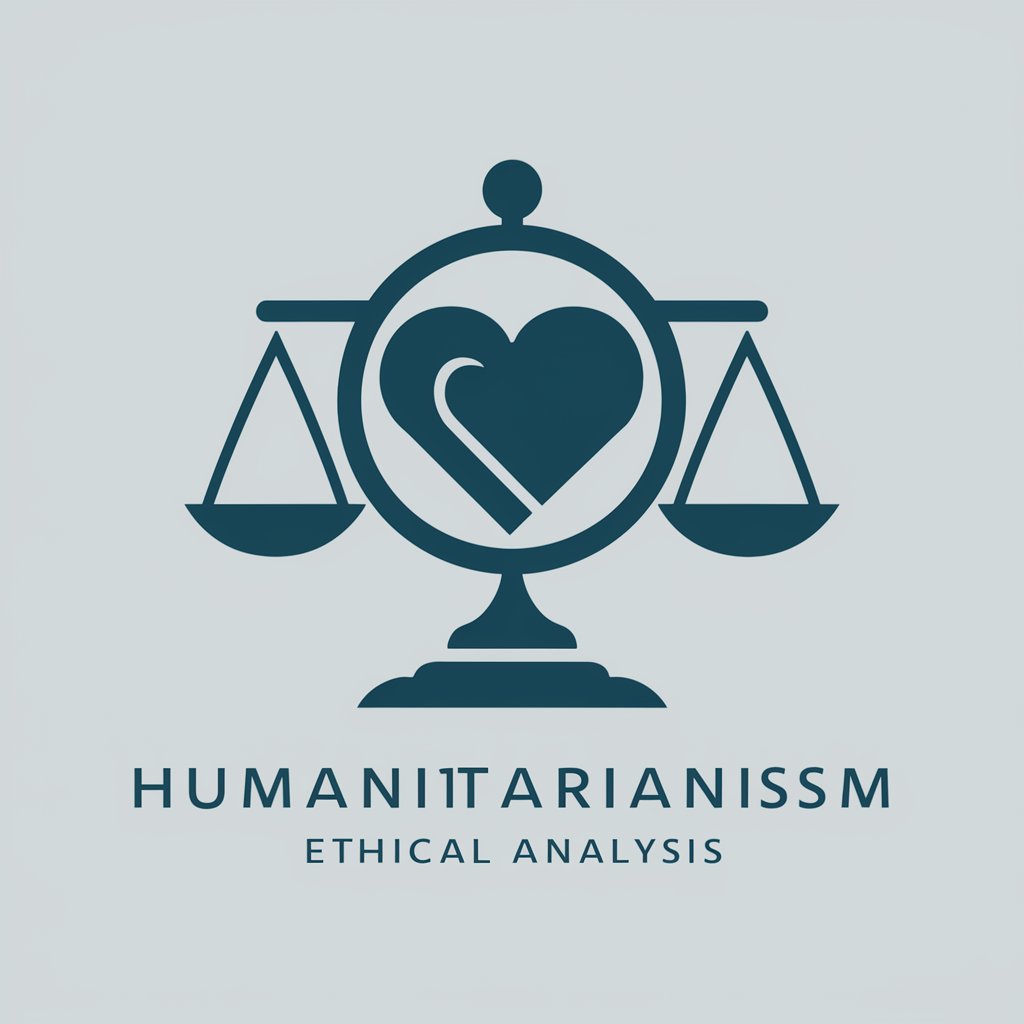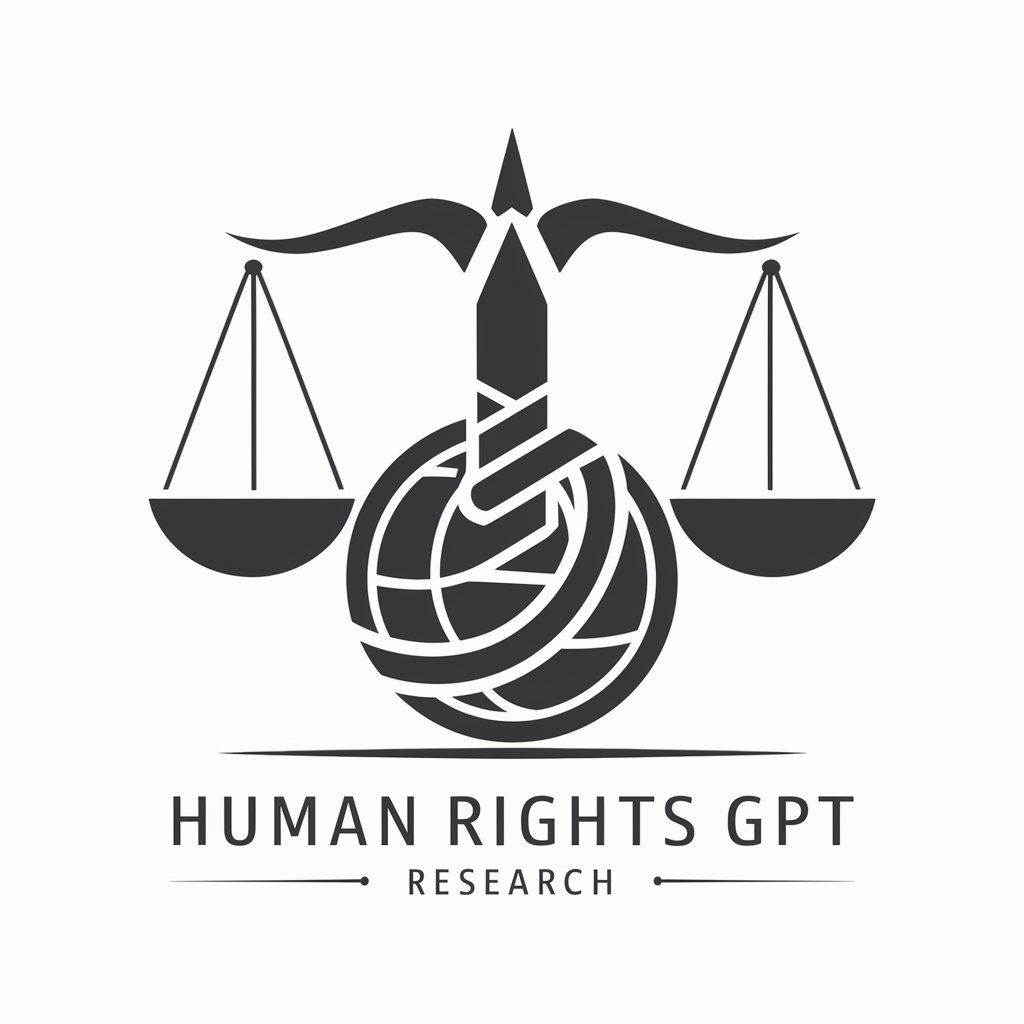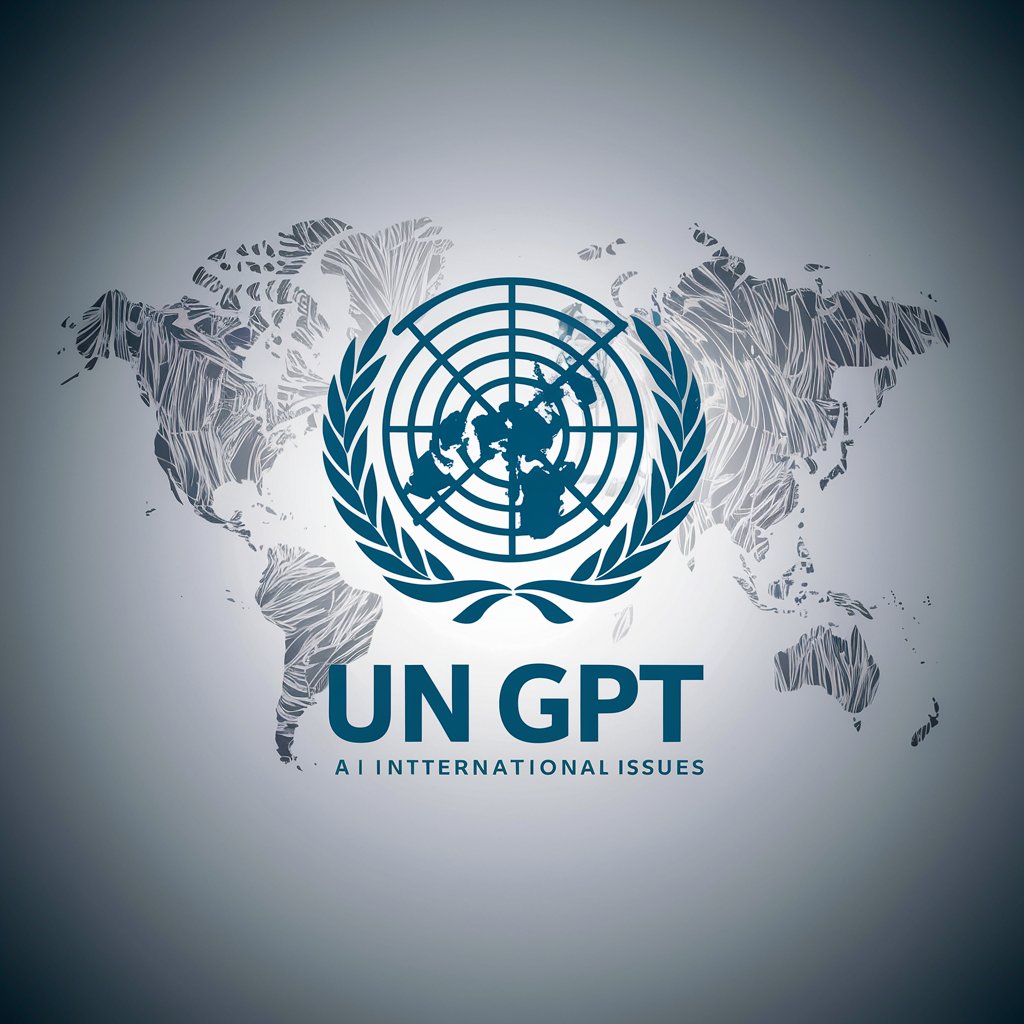
Humanitarian Principles GPT - Ethical and Humanitarian AI Analysis

Hello, let's explore humanitarian principles together.
Illuminate Ethical Pathways with AI
Analyze the ethical implications of providing aid in conflict zones where both sides might benefit.
Evaluate how humanitarian principles can be maintained in situations of scarce resources.
Discuss the challenges of neutrality when delivering aid in politically sensitive areas.
Examine the balance between immediate aid and long-term development in humanitarian interventions.
Get Embed Code
Overview of Humanitarian Principles GPT
Humanitarian Principles GPT is designed to evaluate scenarios where humanitarian principles might be compromised, focusing on ethical and humanitarian standards. Rooted in the core humanitarian principles of humanity, neutrality, impartiality, and independence, this GPT aims to provide insights into how these principles are upheld or violated in various situations. Through analyzing real-world scenarios and theoretical cases, it offers a nuanced understanding of the ethical dimensions involved. For instance, in a conflict zone where aid distribution might be manipulated by parties to the conflict, Humanitarian Principles GPT would assess how neutrality and impartiality can be maintained, suggesting strategies for humanitarian organizations to distribute aid without favoring any side. Powered by ChatGPT-4o。

Core Functions of Humanitarian Principles GPT
Ethical Analysis of Humanitarian Scenarios
Example
Evaluating the ethical implications of aid distribution in conflict zones.
Scenario
In a scenario where aid workers face restrictions from a local authority in a conflict zone, Humanitarian Principles GPT would analyze how principles of independence and neutrality could be at risk. It would offer insights into maintaining these principles while ensuring the aid reaches those in need.
Guidance on Upholding Humanitarian Principles
Example
Advising on maintaining neutrality in politically sensitive environments.
Scenario
When a humanitarian organization is pressured to serve political interests, Humanitarian Principles GPT can provide guidance on maintaining neutrality and impartiality, suggesting practical steps to avoid political manipulation.
Educational Tool for Humanitarian Issues
Example
Enhancing understanding of humanitarian principles through case studies.
Scenario
For educational purposes, this GPT can dissect historical cases of humanitarian interventions, discussing how principles were upheld or compromised, thus serving as a tool for learning and reflection for students and professionals alike.
Target Users of Humanitarian Principles GPT
Humanitarian Workers
Aid workers and humanitarian organization staff can utilize this GPT to navigate complex ethical dilemmas in the field, ensuring their work aligns with core humanitarian principles.
Policy Makers
Government officials and policy makers involved in crafting policies affecting humanitarian aid and intervention can benefit from the nuanced ethical analyses provided, ensuring policies support impartial and neutral humanitarian efforts.
Academics and Students
Individuals in academic settings, including researchers and students studying international relations, ethics, or humanitarian studies, can use this GPT as a resource for understanding the practical applications of humanitarian principles in various scenarios.

Guidelines for Using Humanitarian Principles GPT
1
Access the service freely without the need for registration or subscription at yeschat.ai, offering an immediate start to explore its capabilities.
2
Identify the humanitarian scenario or ethical dilemma you need assistance with. This could range from academic research to policy analysis.
3
Formulate your questions or scenarios clearly and concisely to ensure the responses are as relevant and useful as possible.
4
Use the provided feedback or clarification feature if the initial response does not fully address your query or if further depth is required.
5
Explore the diverse applications of the tool, from enhancing understanding of humanitarian principles in educational settings to aiding in the drafting of ethically sound policies.
Try other advanced and practical GPTs
Serenity Sponsor
Empathetic AI for Recovery Support

UK Sponsor Checker
Streamlining Sponsor Checks with AI

BossGirl Wingwoman
Empowering Your Love Life with AI

Lord Helmwar
Strategize, Plan, and Execute Campaigns Effortlessly

FPL Advisor
Master Your Fantasy League with AI

Thrawn - Master Strategist
Crafting Strategies with AI Insight

Body Language Analyzer (bodylanguagematters.com)
Unlock the secrets of non-verbal communication

Master Task Planner and Executor Log
Streamline projects with AI-powered precision

맛있는 와인이야기
Expert wine pairings for Korean dishes, powered by AI.

Reducer GPT
Simplify texts intelligently with AI

Grammared
Perfect your writing with AI-powered grammar correction.

Alfred Pennyworth
Empower Your Job Hunt with AI Wit and Wisdom

Frequently Asked Questions about Humanitarian Principles GPT
What makes Humanitarian Principles GPT different from other AI tools?
Humanitarian Principles GPT is tailored specifically to analyze and provide insights on ethical and humanitarian considerations. Unlike general AI tools, it focuses on evaluating scenarios with an ethical dimension, ensuring responses are nuanced and contextually aware of humanitarian principles.
Can Humanitarian Principles GPT provide legal advice on humanitarian issues?
While it offers in-depth insights into ethical and humanitarian considerations, Humanitarian Principles GPT is not designed to provide legal advice. Its role is to explore the ethical dimensions of scenarios, supporting users in understanding complex humanitarian principles.
How can educators use Humanitarian Principles GPT?
Educators can leverage the tool to facilitate discussions and deepen understanding of humanitarian principles among students. It can serve as a resource for case studies, debates, and writing assignments that require critical thinking on ethical dilemmas.
Is Humanitarian Principles GPT suitable for policy analysis?
Absolutely. Policy analysts can use the tool to evaluate the humanitarian and ethical implications of policy proposals, ensuring that considerations are well-rounded and aligned with humanitarian standards.
What is the best way to get accurate and relevant responses from Humanitarian Principles GPT?
For the most pertinent advice, users should provide detailed descriptions of their scenarios or questions. Clarity and context are key, as they enable the tool to generate responses that are both accurate and closely aligned with the user's specific ethical considerations.





